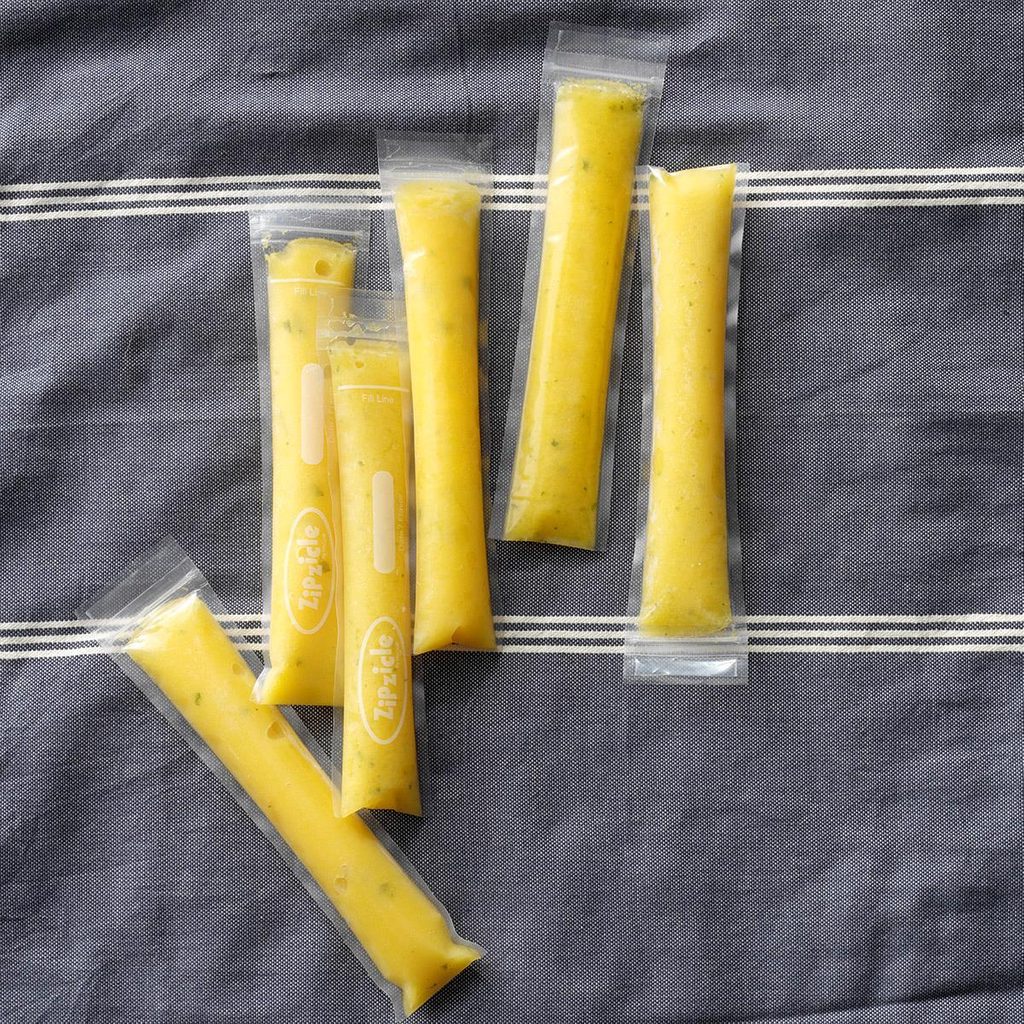Lemon Tart with Almond CrustOur state produces an abundance of lemons, and everyone is always looking for new ways to use them. This beautiful tart is my delicious solution to the excess-lemon problem! —Lois Kinneberg, Phoenix, Arizona
Slow-Cooker Chicken TacosThis slow-cooker chicken tacos recipe is anything but boring or bland. Fresh lime juice, chili powder, salsa and corn give the tender chicken a burst of fresh flavor.
Grapefruit Yogurt CakeWe eat grapefruit for breakfast and in winter fruit salads—why not for dessert? Here's a sweet-tart cake that's easy, delicious and one of a kind. It's healthier too! —Maiah Miller, Montclair, Vermont
Rosemary LemonadeA friend suggested I add a sprig of rosemary to lemonade. The herb makes the drink taste fresh and light, and it's a pretty garnish. —Dixie Graham, Rancho Cucamonga, California
Parmesan Chicken with Artichoke HeartsI've liked the chicken and artichoke combo for a long time. Here's my own lemony twist. With all the praise it gets, this dinner is so much fun to serve. —Carly Giles, Hoquiam, Washington
Pink Grapefruit CheesecakeCheesecake in a slow cooker? It's true! I experimented a few times to turn this iconic dessert into a slow-cooker classic. Give it a try. I promise you'll be absolutely amazed by the results! —Krista Lanphier Milwaukee, WI
Orange-Glazed Pork with Sweet PotatoesWhen it's chilly outside, I like to roast pork tenderloin with sweet potatoes, apples and an orange. The sweetness and spices make any evening cozy. —Danielle Boyles, Sparta, Wisconsin
Quince Orange MarmaladeQuince sweetens this marmalade as it simmers and fills the house with its distinctive autumn aroma. It’s great on toast or bagels for breakfast in the morning! Thanks to our Test Kitchen for the recipe.
Limoncello Cream PieAfter a big Christmas dinner, we love the cool refreshment of a frozen lemon pie. Limoncello brings a little sophistication to each smooth, creamy slice. —Jessie Grearson-Sapat, Falmouth, Maine
Creamy Lemon PastaSilky strands of fettuccine tangle in a lemon-garlic sauce in this creamy lemon pasta. Pops of fresh tomato, garlic and parsley add flavor, and a finishing sprinkle of lemon zest shines through the richness of the sauce.
Lime TartThis lime tart is a prettier version of Key lime pie, complete with a delicious graham cracker crust and tangy whipped topping.
Haddock with Lime-Cilantro ButterHere in Louisiana, the good times roll when we broil fish and serve it with lots of lime juice, cilantro and butter. —Darlene Morris, Franklinton, Louisiana
Orange Dream Mini CupcakesThe bright taste of these cute cupcakes reminds me and my friends of orange-and-vanilla frozen treats. —Jen Shepherd, St. Peters, Missouri
Lemon-Blueberry Pound CakeLovely, lemony pound cake studded with blueberries is a stunning summertime bake that's worth turning on the oven for. The velvety cake gets its rich flavor from a trifecta of cream cheese, butter and lemon yogurt.
Orange Cream Chiffon CakeLight and luscious, this sponge cake is bursting with orange flavor. It’s the perfect dessert to serve after a filling meal, or with afternoon tea or coffee.—Faith Sommers, Bangor, California
Lime-Chipotle Carnitas TostadasHere's a terrific recipe for your next weeknight dinner. Set out various toppings and garnishes so your family members can customize their own tostadas with the lime-kissed shredded pork. —Jan Valdez, Chicago, Illinois
Creamy Lemon Milk ShakesSeveral different recipes inspired the combination of ingredients I use in these shakes, and I'm glad they did! They're so refreshing. —Carol Gillespie, Chambersburg, Pennsylvania
Chipotle Citrus-Glazed Turkey TenderloinsThis simple skillet recipe makes it easy to cook turkey on a weeknight. The combination of sweet, spicy and smoky flavors from orange, peppers and molasses is amazing.—Darlene Morris, Franklinton, Louisiana
Lemon-Apricot Fruit PopsWith just 31 calories, 4 teaspoons of sugar total and lots of vitamin C, this is one light and refreshing summer dessert everyone can find room for! —Aysha Schurman, Ammon, Idaho
Lemon-Roasted Chicken with Olive CouscousIf you can find preserved lemons, use them instead of the plain lemons for an even more authentic flavor in this North African-inspired recipe. —David Feder, Buffalo Grove, Illinois
French Lemon-Apricot TartIf you like the tang of citrus, you’ll love this lemon tart. The apricot preserves on top add a nice bit of sweetness. —Peggy Lunde, Costa Mesa, California
Colorful Shrimp Pad ThaiBright, fresh veggie flavors, a splash of tart lime juice, the crunch of peanuts and a hint of heat make this healthy, beautiful shrimp stir-fry a real standout! —Taste of Home Test Kitchen
Asian Veggie Glass NoodlesMy mom immigrated from the Philippines, so we would often eat Filipino
pancit, a well-known glass noodles dish. I took her version and added my own touches to make it easier and a little healthier. —Jasmin Baron, Livonia, New York













































